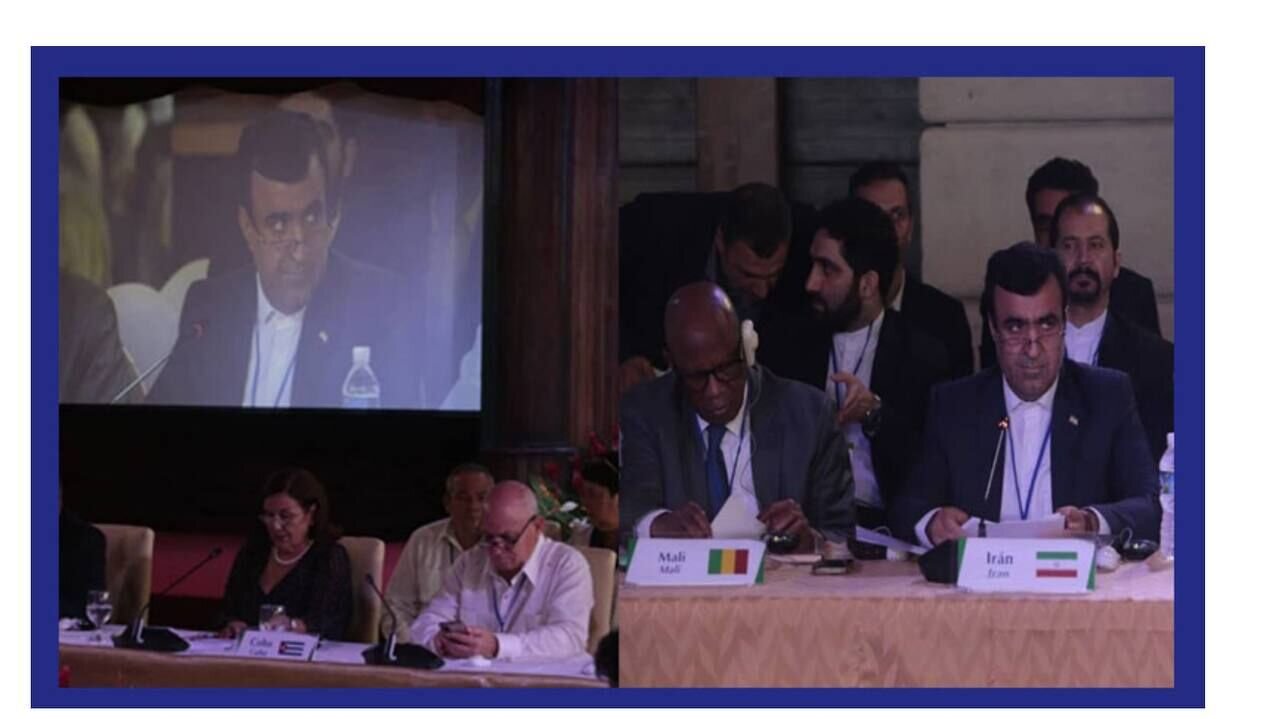Sanctions deprive people of healthy environment: DOE chief

TEHRAN – Ali Salajeqeh, the chief of the Department of Environment, has said unilateral sanctions take a healthy environment away from nations.
Applying unilateral and illegitimate coercive sanctions is not only a big obstacle to the economic and social development of countries, but also deprives the right to enjoy a healthy environment by overshadowing the principles contained in the United Nations Charter and international laws, he explained.
He made the remarks at the 14th International Convention on Environment and Development, which opened in Havana, Cuba, on Monday and will wrap up on Friday.
The event gathers authorities of the G-77 and China. It includes nine specialized forums on different environment-related issues, aiming at considering learning lessons and experiences from plans of action to mitigate the effects of climate change.
A vulnerable and damaged environment caused by natural and human factors is not able to provide optimal ecosystem services, he stressed.
“In addition, the imposition of sanctions has made it tough for the government of the Islamic Republic of Iran to take appropriate action.
The country is deprived of access to global environmental funds including the Global Environment Facility (GEF) and many new equipment and technologies have been denied.”
The government of the Islamic Republic of Iran, like many other governments, has not only included the principle of environmental protection in its Constitution but also emphasized the environment as the main focus of balanced development in its national plans, Salajeqeh highlighted.
“Carrying out projects such as planting of mangrove forests in coastal areas in order to sequester carbon; recycling carbon dioxide and reusing it in various industries, especially petrochemical and refinery industries; implementing projects to collect and process flare gases in oilfields; creating and setting up a bank of biological and cellular samples as a method of out-of-habitat protection of the genetic resources of the country's wildlife; and paying special attention to the issue of microplastics and a serious determination to reduce their release are on the government's agenda.”
Intl. co-op to combat SDSs
Salajeqeh went on to say that one of the major effects of climate change is the increase in sand and dust storm hotspots in Africa, Central Asia, and West Asia, and now the range of adverse effects of this phenomenon is expanding in other regions of the world.
In this regard, the issue of sand and dust storms was proposed in the resolution of the United Nations General Assembly, and as a result, an international conference to deal with the phenomenon will be held on September 9 and 10 this year in Tehran, he noted.
In February, Salajeqeh said a meeting will be held in July in Tehran with the presence of the environment ministers of the world countries.
The Department of Environment will hold five international meetings in the current Iranian calendar year that started on March 21, he added.
“Environmental diplomacy is the main priority for the country's political diplomacy, so holding the conference on combating sand and dust storms is important for us.”
In this line, the Department of Environment has held meetings with neighboring countries to the extent that Egypt has also announced its readiness to attend the Tehran meeting, he concluded.
MG
Leave a Comment